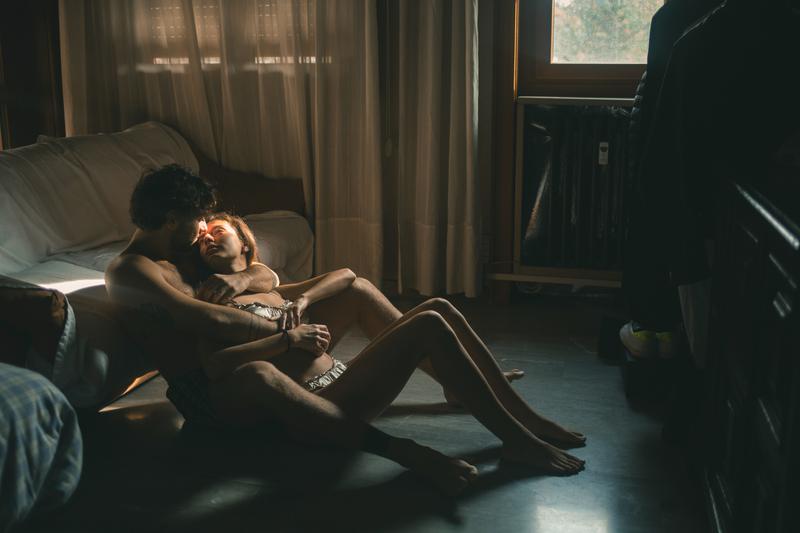by Joanna Acevedo
November 1, 2022
Joanna Acevedo (she/they) is the Pushcart nominated author of the poetry collection The Pathophysiology of Longing (Black Centipede Press, 2020) and the short story collection Unsaid Things (Flexible Press, 2021). Her work has been seen across the web and in print, including in Hobart Pulp, Digging Press, and the Write Launch. She is a Guest Editor at the Masters Review and Frontier Poetry, Associate Poetry Editor at West Trade Review, Reviews Editor for the Great Lakes Review, and received her MFA in Fiction from New York University in 2021. She is supported by Creatives Rebuild New York: Guaranteed Income For Artists.
The World Keeps Ending, and the World Goes On , by Franny Choi; HarperCollins Publishers; 144 pages; $24.99
“Dystopia of falling out of love with God,” says Franny Choi in the poem “Science Fiction Poetry,” from her forthcoming collection, The World Keeps Ending, and the World Goes On. This collection, which comes out in November, 2022, is a breath of fresh pandemic air, the kick in the pants and the cry for despair we all need. The poems, which are varied in structure, but laser-focused in content, call out for a new world, a better world, but also keenly observes this one. It is also tender, exploring death, mother-daughter relationships, and grief, so much grief. Choi is at her best when she is at full speed, searing ahead in long poems about the world we live in, and how destroyed it is—but also, how we love, and how we need to be loved, to cope with it all.
Dystopia is a good word for these poems, which are full of death and light, full of soldiers with boot heels crunching, full of young women crunched under boot heels. But these young women, they fight back. Choi is writing her way out of the end of the world, protesting the only way she knows how, writing through her own memories and generational ones; her mother’s, her grandmother’s, to show her readers that there is life after war, life after death.
In “Dispatches From A Future Great-Great-Granddaughter,” Choi says, “What I want you to know is that we’re okay. Hurting/but okay. We’re surviving, though it’s true,/we don’t know what that means/exactly." Survival is at the core of these poems. Choi mentions her grandmother choosing marriage as a salvation from rape, for example—exemplifying the terrifying choices that women must make in order to simply survive in a hostile world. Also in “Dispatches,” Choi goes for humor:
Dear Improbable You,
What was it like to live so gridded? So trackchanges?
So carceral, somnambulant, asphyxiating at split screens
while Nation glowed with rot?
We’re hurting but okay, Choi asserts, in our gridded world, full of track changes and other accouterments. What does survival mean to you? Choi explores this concept repeatedly, looking at it from all angles. There are the Korean refugees who use partially detonated napalm canisters for cooking fires. There is Choi’s own grandmother, stomped on by police. There is Choi herself, trying to make a poem out of all of it.
The simplicity of these poems is part of their deception. Many of them are simple prose poems, and this allows Choi to flex her powerful voice, hitting the reader over the head with beautiful line after beautiful line, as well as striking a conversational tone that feels intimate and close. In “How To Let Go Of The World,” Choi mixes anecdotes with climate change with grief stories about her deceased first love, who fell off a building, all told in short, proselike lines, and the effect is close and friendly, despite the heavy subject matter. It feels as if Choi is talking directly to the reader. “Among a growing list of promises I can’t make my friends: This weight will tether. You will come back up again. The faithfulness of gravity, of morning sounds. If only you’ll stay” Choi says early in the poem, deeply evoking the hideousness of depression in the face of climate change and the seemingly impending apocalypse. Choi finishes off the next section of this poem with, “I don’t know how to do it: hold their faces in my hands and tell them what’s waiting. How to teach any of us to follow this song, into what dark."
At times, this collection is overwhelming—but perhaps it’s meant to be. Choi doesn’t hold back. In “Rememory,” she says, “Whose story was I remembering when riot cops closed in/on all four sides, and a sound happened from somehow me?/The sound was a sound from 1980—year my father was a young man./Year of bayonets, year of soldiers shooting into crowds, limbs on fire." Visions of riots, soldiers, and violence pepper this collection, and Choi deftly navigates through it all, finding the moments of tenderness through the rubble. Read in one sitting, this collection can be overtaking. But doled out in parcels, it’s the best medicine.
“Lord, I confess I want the clarity of catastrophe but not the catastrophe./Like everyone else, I want a storm I can dance in./I want an excuse to change my life” says Choi early in the book, and perhaps this is the meaty center of the collection. Choi acknowledges that disaster is a part of life, that endings are necessary, and that the impending apocalypse has become something we all have to live with. The beauty of this collection, however, is that we all find ways to cope; be it love, or mirth, or laughter, the storm we can dance in. Choi has found that storm, with this beautiful, earth-shaking book.
©2022 West Trade Review
__________________________________________________________________________________________________________________________________________________________________________
__________________________________________________________________________________________________________________________________________________________________________
__________________________________________________________________________________________________________________________________________________________________________
__________________________________________________________________________________________________________________________________________________________________________
__________________________________________________________________________________________________________________________________________________________________________
A Storm To Dance In: Review of Franny Choi’s The World Keeps Ending, and the World Goes On
POETRY REVIEW
Stay Connected to Our Literary Community. Subscribe to Our Newsletter
Image by Jessica Ticozzelli from Pexels




